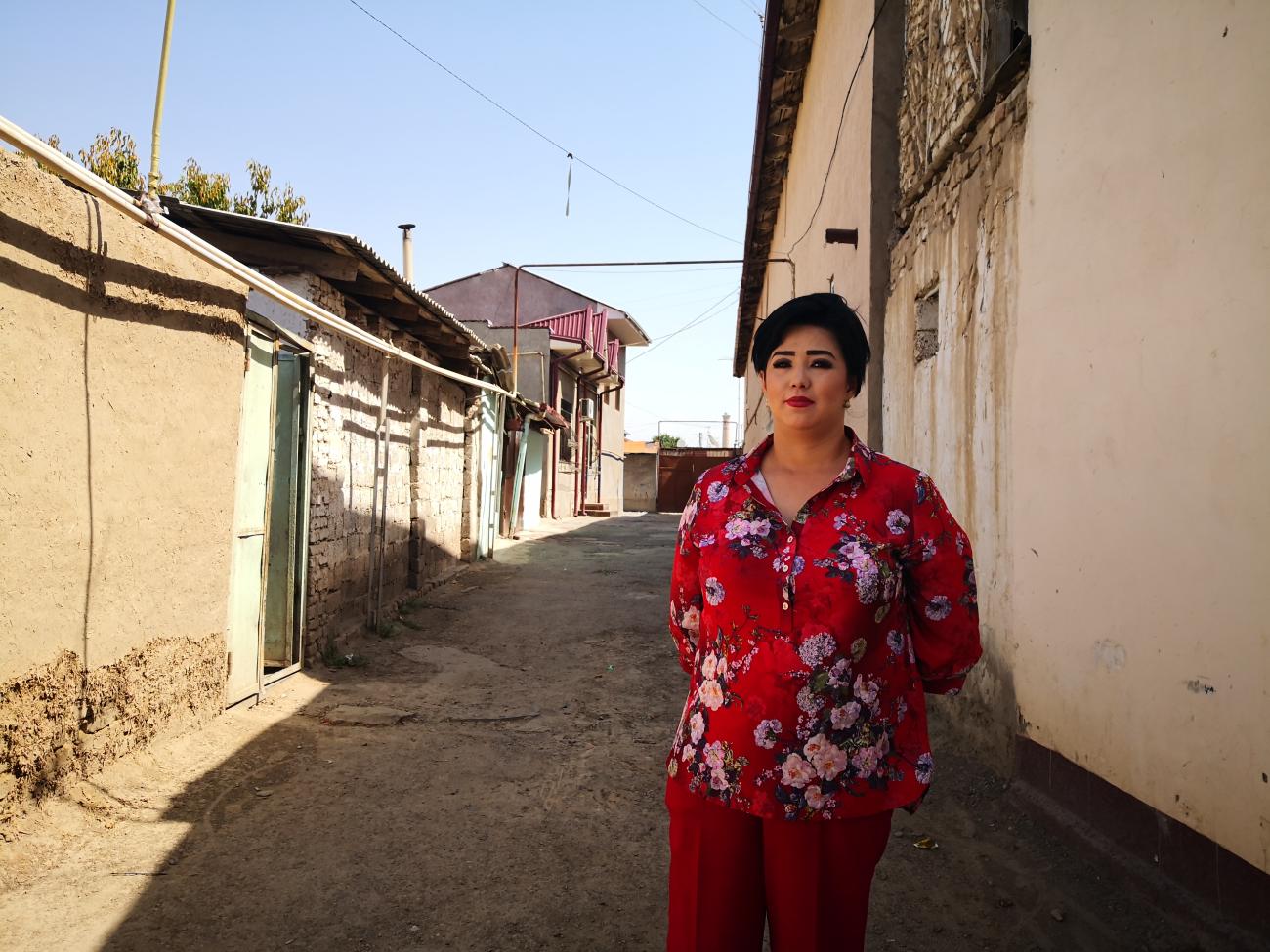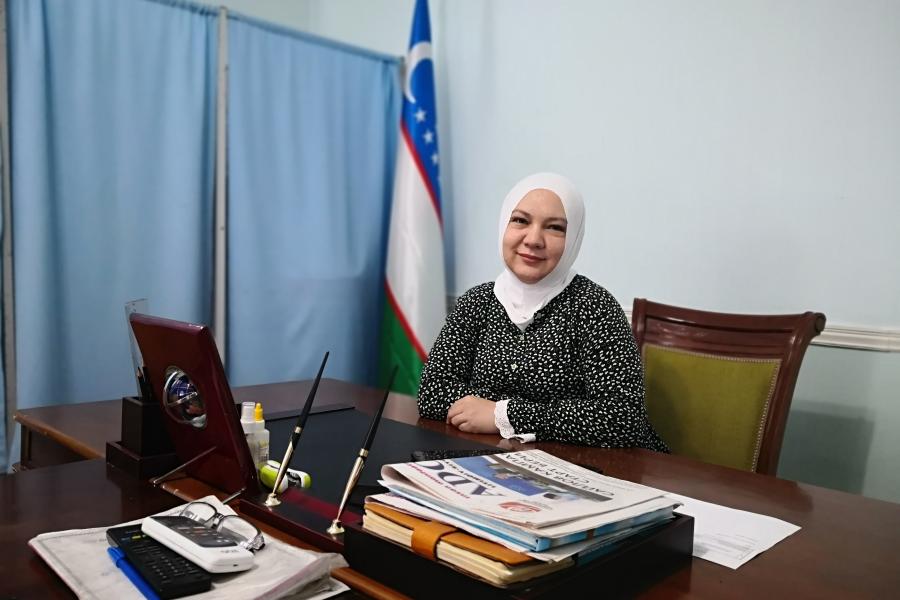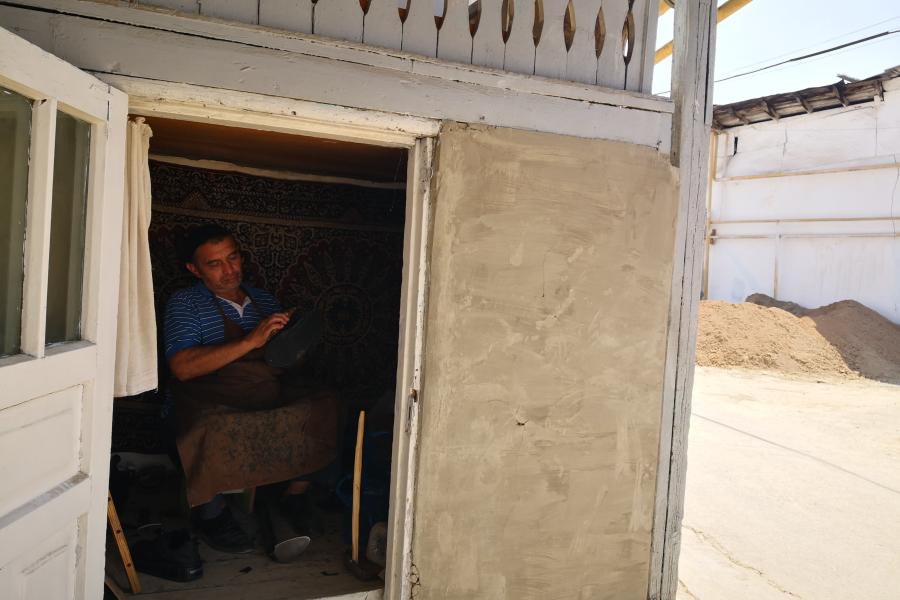Unemployment and Child Benefits Together Can Sustain Households in Need

Unemployment and child benefits are important source of income for families enable to earn or sustain adequate living standards
Since 2020 the United Nations Joint Programme supports Uzbekistan to reform its social protection system in line with international security standards. Special emphasis is made on unemployment and child benefits as important source of income for families enable to earn or sustain adequate living standards.
Aziza used to trade in the market as an individual entrepreneur but had to stop her activity due to family circumstances. She lost her husband, the breadwinner in the family, and had to move to and live her parents with her 3 years old son in Tashkent. She did not have enough savings from her business to cover her expenses in the early days of maternity. The family faced a difficult financial situation.
The mahalla committee helped Aziza to secure child benefit as she raises a 3-year old son alone. Initially Aziza was receiving 194 000 soums (around USD 18) per month but according to the presidential decree from 11 August 2021 the amount of a benefit for low-income families with one child has been increased to 250 000 soums (USD 23.5). Of course, the amount of money is still modest as compared to the minimum consumer expenditures – 440 000 soums (USD 41) but they are not intended to cover all expenditures of a family but rather to support additional family spending due to childcare.
To help Aziza, her sister advised to approach assistant inspector of the Employment Promotion Centre (EPC) attached to the local mahalla and seek financial support. The assistant inspector helped Aziza to collect all the necessary documents and processed her application for unemployment protection. Each mahalla in Uzbekistan has such EPC assistant inspector who works at the community level directly with the population and monitors the employment situation.
Unemployment and child benefits helped us cover basic family needs. I even managed to save a small amount of money to buy for my son a toy car that he dreamed of, says Aziza.
According to the new version of the Law “On Employment”, unemployment benefit for an applicant without formal employment history amounts up to 75% of the minimum wage which is set at USD 65, while average wage amounts to USD 267. Aziza received the unemployment benefit for some time and then she got employed within her mahalla as a community worker.
Dilorom Tulaganova is an assistant inspector of the Employment Promotion Centre who works with the residents of Abu Bakr Shoshiy mahalla in historical part of Tashkent that unites 5200 people from 440 households.
According to Dilorom, most of the applicants are women. There are not that many male applicants because the nearby Chorsu bazaar (the central market of old Tashkent) provides enough employment opportunities for them. Besides formal employment, male residents are informally self-employed in trade, taxi, and catering services, as well as in small-scale home-based manufacturing, crafts etc.
Dilorom’s work does not consist of applications processing only; she constantly goes around mahalla talking to people to identify those who need her assistance and also to detect cases when unemployment benefits are misused.

We must distribute the budget for social protection very carefully so that it reaches those who need it most, says Dilorom.
In 2020, 89,651 unemployed persons received unemployment benefits or only 0.7% to the total number of employed. Unemployment benefit is delivered when EPC cannot offer a suitable job for an applicant. Dilorom says that four out of every five people who ask for assistance to find a job get employed.
Informal and self-employed workers are often the most vulnerable at the labour market and there is a need to extend the social protection coverage to this group.
Obid worked at a shoemaking factory in Tashkent, but had to quit due to poor health. He could not find a suitable job through the EPC. Mahalla helped him to set up a small shop and he is now a self-employed cobbler who does not make social insurance contributions. As a self-employed person, Obid is not entitled to unemployment protection and the amount of his pension will be lower once he retires.

I could not find a suitable job for myself at the employment facilitation centre. I chose to be self-employed, Obid says.
“Indeed, people like Obid are currently excluded from the social protection system. They cannot claim benefits because they earn livelihoods, but this income may not be sufficient to escape poverty and to make social insurance contributions to insure themselves against risks we all face during our lifetime, including the risk of unemployment,” says Jasmina Papa, Social Protection Specialist, ILO Office for Eastern Europe and Central Asia. “Most recent assessments in Uzbekistan propose options for protection in case of job loss and how to bring some workers in informal economy under social insurance umbrella. The new social protection strategy that the UN Joint Programme on Strengthening Social Protection in Uzbekistan works on together with the Government is proposing methods to strengthen the link between social protection and active labour market measures enabling access to sustainable and decent jobs.”
The National Social Protection Strategy sets out to extend the coverage with social protection to workers in informal economy . Today, 56.6% of the total employment in Uzbekistan accounts to the informal sector. Protecting this large portion of the working population in case of job loss will also contribute to the realization of other strategic ambitions like the Sustainable Development Goals, the Poverty Reduction Strategy and the National Employment Promotion Strategy till 2030 and will contribute to transition from informal to formal economy.
Options to expand the coverage with unemployment protection and how to bring some workers in informal economy under social insurance umbrella can be found in the most recent report.




